On March 22, QS released the 2023 QS World University Rankings by Subject!
The QS World University Rankings by Subject is a ranking of universities and colleges that are leading in a specific subject. Unlike the comprehensive university rankings, the QS World University Rankings by Subject is more inclined to the assessment of academic elements.
Therefore, this list is of great reference significance for those who are more concerned about professionalism and subject teaching quality, and it also provides an objective reference for those who plan to study abroad.

PART.01
QS Subject Ranking Evaluation Indicators
The 2023QS World University Rankings by Subject Index consists of the following five components:
academic reputation
The professional evaluation and recognition of the discipline by the world's top authoritative experts and scholars;
employer reputation
The evaluation and recognition of graduates of this discipline in employers by leading employers in the industry around the world;
Citations per paper
The "average citation" of this subject in the world's largest paper citation database Scopus in the past five years, involving tens of millions of academic documents and over 100 million citation data;
H-index
A measure of the productivity and impact of a scientist or scholar's published work;
International Research Network (IRN Index)
The ability of universities to geographically diversify their international research networks by establishing sustainable research partnerships with other higher education institutions.
PART.02
Highlights of the global university rankings
In terms of the number of institutions on the list, 226 institutions from the United States and 109 from the United Kingdom. There are 99 universities in mainland China, ranking third in the list.
■ U.S. institutions:
American universities still dominate the list, occupying the most places in the top of the list!
Harvard University has the strongest performance in the rankings, ranking first in 14 subjects, one more than last year. MIT ranked first in 11 subjects, unchanged from last year.
■ British institutions:
UK universities remain dynamic, ranking first in 15 subjects.
Among them, the University of Cambridge and the Royal College of Art ranked first in two subjects respectively.
■ Chinese institutions:
In this subject ranking, the number of subject programs in universities in mainland China reached a new high, reaching 851. A total of 7 disciplines in mainland China have entered the top 10 in the world, namely Tsinghua University (3), Peking University (2), Wuhan University (1) and Tongji University (1).
A total of 9 universities in Hong Kong, China, have made achievements in 44 disciplines.
■ Other areas:
Singaporean universities occupy several places in the top 10 for each subject, which makes Singapore have a world-class higher education system. The National University of Singapore ranks best in the Asia-Pacific region.
The total number of disciplines that Australian universities enter the ranking ranks fourth in the world.
In Canada, the University of Toronto has 48 subjects in the Top 50, making it the best-performing university in Canada.
PART.03
Ranking of the five majors
Compared with the world university rankings, the subject rankings can more intuitively see the global ranking of the selected major, and provide a reference for you or your children when choosing a school.
Arts and Humanities
Arts & Humanities
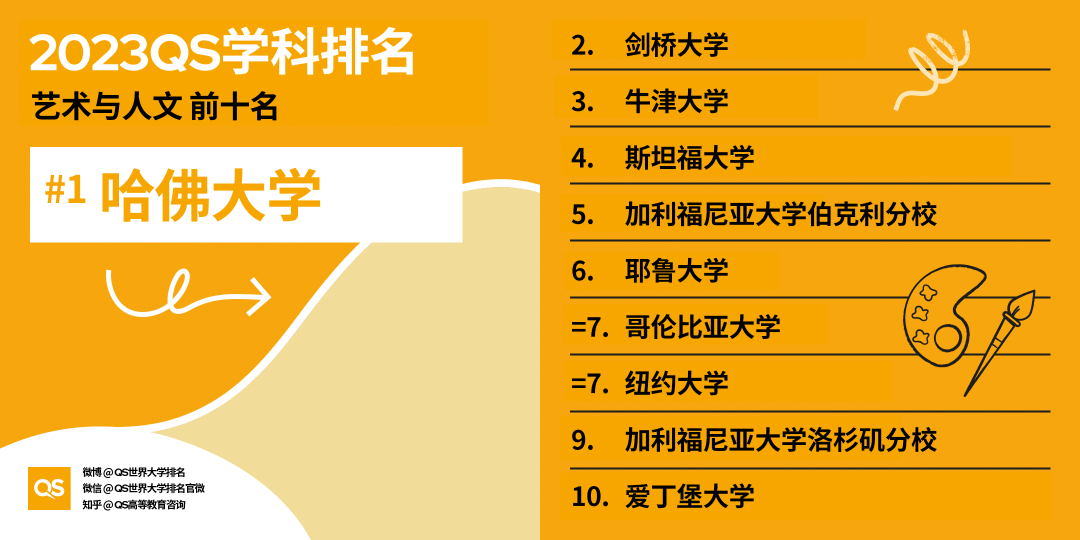
Engineering and Technology
Engineering & Technology
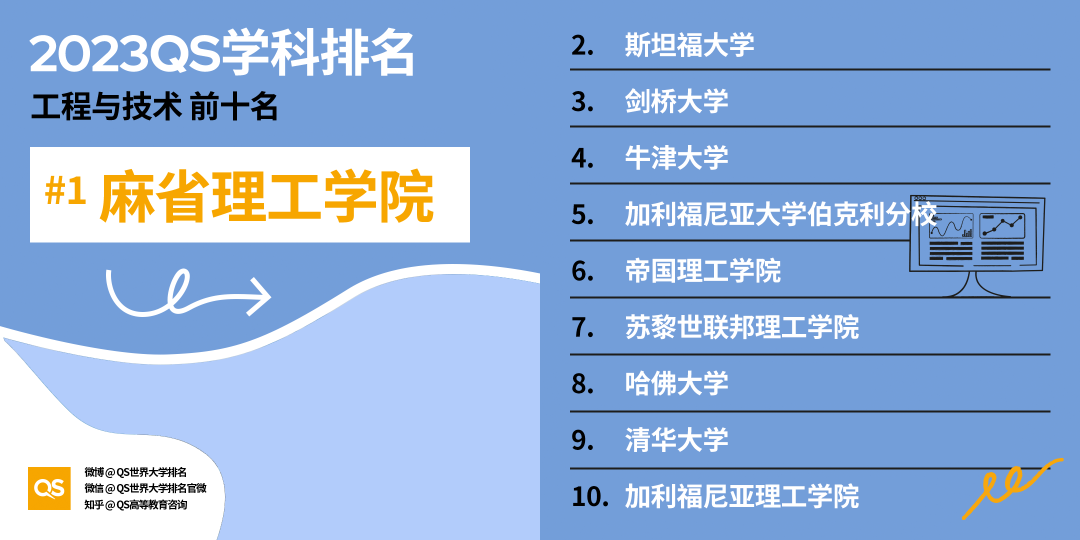
Life Sciences and Medicine
Life Sciences & Medicine
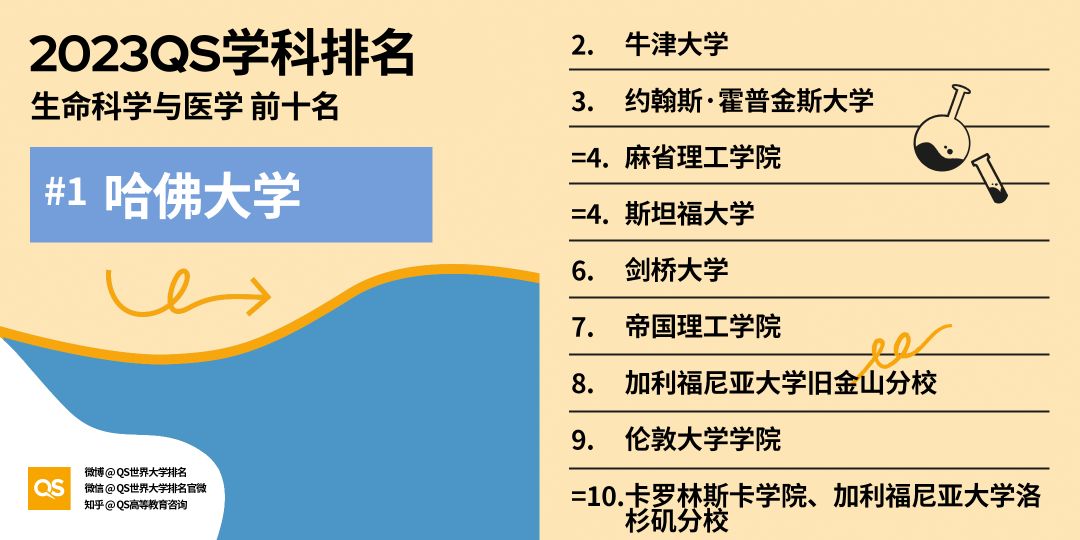
natural science
Natural Science
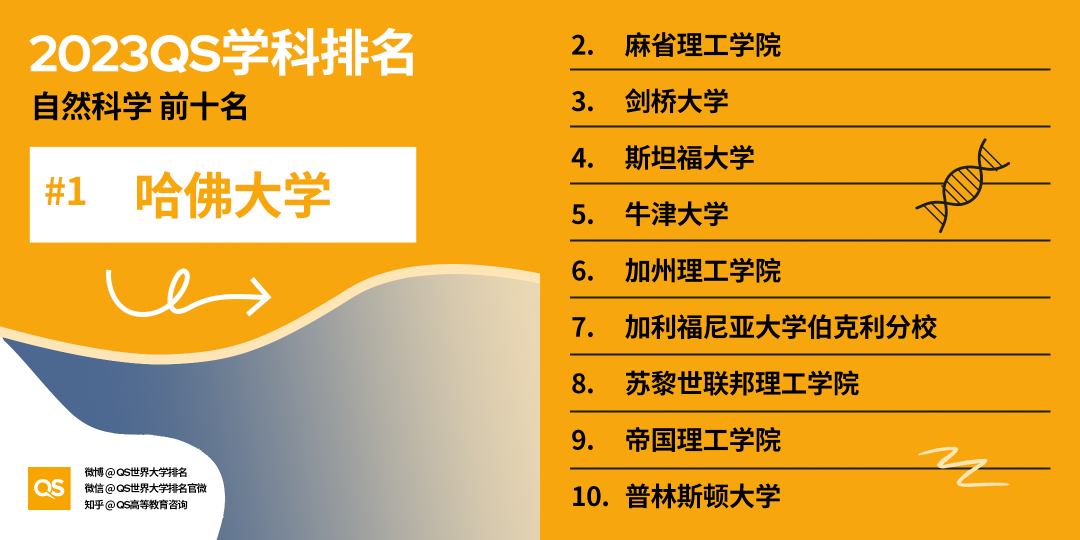
Social Sciences and Management
Social Sciences & Management
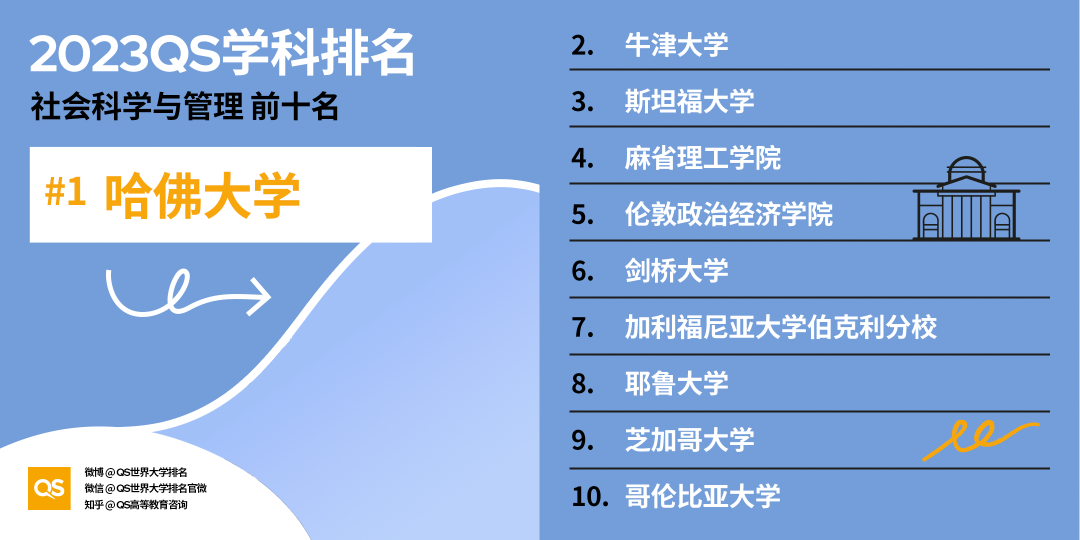
For more subject rankings, please visit the QS official website:
https://www.topuniversities.com/
With the continuous development of the economy and the gradual improvement of living conditions, in addition to high-net-worth families, more and more middle-class, intellectual elites and professionals in various fields no longer stick to the college entrance examination in the choice of children's education. They have chosen overseas education for their children.
And having an overseas identity allows children to enjoy the same educational benefits as citizens of their own country, which has more advantages than international students (students):
How does overseas status help children's education?
lower tuition
Higher acceptance rate of prestigious schools
more generous scholarships
More professional options
Richer and more open employment options
Travel, part-time jobs, medical benefits, etc.
...
If you have needs for studying abroad, identity planning, children's education, etc., please consult Xingyunhai International for detailed identity planning solutions.



























 Cyprus
Cyprus Turkey
Turkey Saint Kitts and Nevis
Saint Kitts and Nevis Greece
Greece
